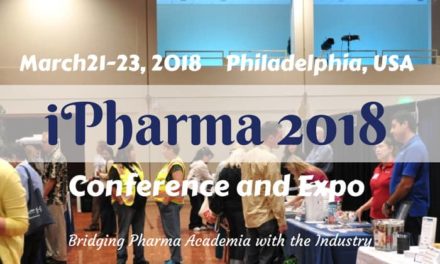……being well prepared is the most effective strategy for success!
As previously mentioned, eradicating entry points or exposure points for selected data and information will play a major part in your strategy for a successful FDA inspection. The agency is looking to test your quality management system to see if it proves effective in helping your site to remain in compliance. Immediate in that inspection strategy is to define exposure points, or points of weakness which then can be used to rigorously evaluate how well you are doing. In the first instance then they’re looking to build a high-level picture of whether you have control of your product or not. So, in building out this protective strategy, companies should focus on ensuring that the company training is appropriate and up to date for every aspect of the site operation. This includes the laboratory, production operations, preventive maintenance and calibration, the warehouse –shipping and receiving, as well as quality operations.
For example, they may highlight poor control by QA through change control requests not being closed out and investigations that are not completed or not closed out, or are ineffective.
These are the mechanisms that they use to develop high-level trends after which they will search for data that could support a possible citation.
What are the key strategic elements then to eliminate this type of situation and have a successful inspection outcome?
The first is to know your exposure points and then either eliminate or at least minimize them.
Second is to answer the questions using specific points, examples and data and to be concise.
Next, don’t offer more information than necessary because that may open up fresh issues which were not being discussed. This is always a dangerous situation and is best avoided by being focused with one’s answers.
Always, always, always….. Be honest in your answers and never lie. The truth will always come out and if you lie the consequences will be more damaging.
In circumstances where you don’t know the answer, let inspectors know that you don’t know but you will get them the answer and /or find the appropriate person to give them the best response to that question.
As a general rule it’s important to realize that no one expects you to know everything, so be judicious in whom you nominate to answer questions on a particular or given subject. Always find the appropriate subject matter expert.
In developing the strategy for a successful FDA inspection process, it is important to hold practice sessions and drill anything that you may find from your historical review process.
Yes, identify points of weakness and practice perfect answers to questions that one can anticipate in relation to those situations. In developing those answers always have the most appropriate subject matter expert on hand to deliver those answers to appropriately neutralize any concerns that the FDA inspectors might have.
When it comes to answering questions on investigations, try to have the individuals on hand that were either associated with the original deviation and/or those individuals that were involved in the writing of the investigation emanating from that deviation. Remember, inspectors are looking for the most informative answer to that line of inquiry, so it’s probably best to select those individuals that played some role to deal with those questions.
Some useful tips for inspection success include the following:
- Discuss with all the staff in the company what the company’s Regulatory obligations are to the FDA.
- Make sure that the receptionist or the security guard is briefed to contact the individual assigned to accept form 482. This should be the head of quality for the site.
- Always assure that the inspection process is professionally facilitated.
- In assigning the inspection lead, always make sure that there is a backup to lead and facilitate the process in the event that the site head of quality is absent from the site at the time of the inspection.
- The company should assure that the document requests from the FDA inspection team are met in a timely manner. No more than 20-30 minutes at most.
- Avoid refusing the FDA inspector their requests.
- Be prepared to make records available by electronic mechanisms. Today, the FDA will most likely desire to review documents/files in your quality system, and their preference is to move away from paper-based reviews.
- Make sure that you have facilities available to demonstrate electronic documents for the inspectors, as the FDA is not permitted to operate your equipment.
- If the FDA request documents to take away, prepare copies on a CD-R or alternatively make them available on a USB memory stick. In doing this, remember to be in compliance with your site policy for data integrity, otherwise this could generate a 483 citation.
- All employees will be expected to be familiar with the quality policy for the site because all employees are responsible for quality since this is a fundamental GMP requirement. Make sure that this is clear with all site staff.
- Fundamentally, site staff will be expected to understand all aspects of their job description, what training is required to meet that job description, where they stand with respect to the level of completeness of that training at a given moment in time, what procedures and other documents are required for them to be able to meet the job requirements and if necessary, in the event of a deviation from standard practice, how to report that nonconformance.
These are some of the fundamental things that will ensure success in your inspection process. Practicing these fundamentals and keeping them in first position mentally will provide one of the greatest attributes towards your ability to generate a successful inspection outcome.






